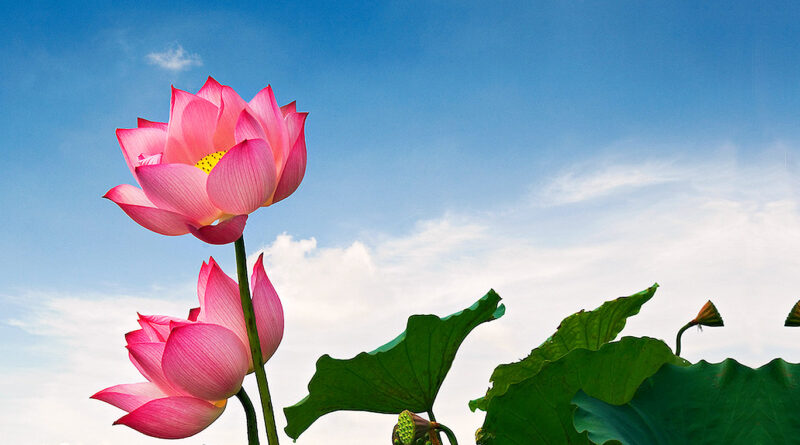PRODUCING EXPERIENCE
Producing Experience
A friend of mine once wrote a novel about a storytelling contest between the gods of the Taoist heaven. In the course of the novel you read about the gods conducting their story contest — it’s the male gods lined up against the female gods, but there are traitors on both sides — and you also read the story they invent, alternating from one side to the next. The story’s full of all kinds of suffering: A young woman gets sold as a slave to get her parents out of debt; her new master is a good person, but he dies off pretty quickly; he’s got an evil brother, and all kinds of horrible things happen; there are floods, fires, suicides, lots of injustice — what makes for a great story but a miserable life. And then at the very end of the novel Kuan Yin appears and tells the Taoist gods, “Well, now that you’ve told this story, you’re going to have to go down there and live it.” The last image in the novel is of the Taoist gods all tumbling out of heaven down to the earth they’ve despised so much below. Of course, Kuan Yin here represents what Buddhism did to China: It brought in the teaching on kamma.
We’re creating our lives. And even when the mind seems to be simply spinning its wheels, it’s not just idly spinning its wheels. It’s creating new states of being, new possibilities — some of which are good, some of which are not so good. You have to keep that principle always in mind as you’re meditating. You’re not simply here innocently watching what’s going on without any responsibility for what you’re experiencing. You’re responsible for your experiences — through your actions in the past and in the present moment. On the one hand, this sounds a little onerous because nobody likes to take responsibility. On the other hand, though, it’s empowering. If you don’t like the present moment, you can create a new present moment because the opportunities to do so are endless.
We’re not just consumers of experiences. We’re also producers. We have to keep this principle in mind as we go through the practice. Our training in the precepts reminds us that we shape our life by the choices we make in what we say and do. Our training in concentration teaches us that how we approach the present moment is going to make a big difference in how the moment is experienced. You can develop skill in the way you focus on the breath, the way you adjust the breath, the way you develop sensitivity to what’s going on in the body. These are all things you do as a producer of experiences, and you can learn to do them more and more skillfully to create a sense of wellbeing in the present moment.
Even when there’s pain in the body, even when there are other difficult issues in life, you can create a still center for yourself. You don’t have to be a victim of what comes in from outside. You don’t have to be a victim of whatever comes welling up from within the mind. You have a role right here, right now, in shaping things, and — as you develop more mindfulness, develop more alertness, as your powers of concentration get more and more solid — you have the tools you need to make that present experience a lot more livable.
The same principle holds true as we try to develop discernment. We’re often told that discernment consists of seeing things as inconstant; and because they’re inconstant, they’re stressful; and because they’re stressful, they’re not-self. Now, most of us in the West are used to consuming our experiences. We don’t buy a Ford Explorer. We buy the Ford Explorer experience. We go to Yosemite for the Yosemite experience. If we take the Buddha’s teachings on discernment out of context and put them in our normal consuming mode, what do they seem to say? They seem to say, “Life is short. Experiences are fleeting. Grab as much pleasure as you can.” And since you can’t hold onto things for too long before they change, you have to try to embrace them, appreciate them, squeeze as much as you can out of your experiences, and then be quick to let go before they start falling apart. But that’s okay because other experiences will come along, so that you never run out of things to embrace. In other words the teaching seems to be telling us how to be expert connoisseurs in consuming our experiences.
Taking the teachings out of context leads to other misunderstandings as well. You begin to think, “If everything’s impermanent, why spend all this time trying to develop concentration? It’s all going to end someday anyhow. Why try to develop good qualities in the mind? They’ll all come to nothing eventually. Why don’t we just accept what we’ve got and learn to enjoy that?” But that’s taking the teachings out of context.
When the Buddha taught the teachings of discernment, he started with questions of, “What’s skillful? What’s unskillful? What can I do that will lead to long-term happiness?” This is the first set of questions you’re supposed to ask to develop discernment. If you look at your normal patterns of consumption, you begin to realize that a lot of them are very unskillful: They lead to only short-term types of happiness. And you realize it’s not just the consumption, but it’s also what you do to produce these experiences that’s unskillful. You find yourself acting on greed, anger, passion, fear, just to get the experiences you want.
So to get out of that pattern you want to develop the skills that will make your happiness more solid, longer lasting, less likely to turn on you and eat you up. This is the type of discernment that underlies development in terms of virtue and concentration. You refrain from the activities that would lead to instant gratification but long-term regret, long-term remorse. You develop qualities of mind that create a sense of greater wellbeing that doesn’t have to depend on outside stimuli, that can stand up against any kind of outside situation.
Once you’ve developed these qualities, you take the process of discernment a little bit deeper. Use that principle of inconstancy to ask, “Is there anything that’s not inconstant? Do I have to keep on producing, producing, producing for the rest of eternity? Isn’t there a type of happiness that doesn’t require that?” So you turn and look more carefully at the type of happiness you’re creating. Then you run into the question of, “Who’s consuming this? What is this consumer? What is this producer?” You begin to see that the consumer is also made up of khandhas you’ve produced. And this insight makes the whole process seem even more futile. Why would you want to get involved in this process — creating experiences for experiences to enjoy? From this point of view, even long-term happiness isn’t good enough. Your powers of sensitivity have been sharpened. Your insight into the process of production and consumption has gotten sharper as well. And when you finally reach the point where you see that it’s not necessary, you let go.
If you were only a consumer, it’d be easy enough to continue enjoying things that are inconstant as long as you’ve learned to mind your manners in how you embrace things — hugging without grabbing — but as a producer there comes a point when you get tired of producing. You’ve had enough. You see that all the effort going into producing is simply not worth it. That’s the insight that allows you to drop things, that allows you to let go.
And it’s in that context that the teachings on the three characteristics have their true meaning, play their true role. Like the storytellers in the novel, we have to be careful about what we’re creating because we’re going to have to live in what we create. Keep asking yourself, “Is this good enough? Am I satisfied with what I’m creating?” — because it’s not an easy task to stop creating. If it were easy, we wouldn’t have to sit here and meditate so hard. It’s difficult and, whether we like what we’re creating or not, we keep on creating. That’s the problem.
So as long as you’re going to create, try to create as good a world for yourself as you can, as good a world for the people around you as you can, until you’ve developed the qualities where you can look into this world-production activity in your mind, this factory that keeps churning things out moment-by-moment-by-moment, to see if you can take it apart.
It sounds a little scary, but then the Buddha promises that once you take these things apart, there comes a happiness that nothing that you’ve created can ever compare to. This promise, together with the reality of that uncreated, unfabricated level of happiness: that’s what makes all this work we’re doing here more than worthwhile.



